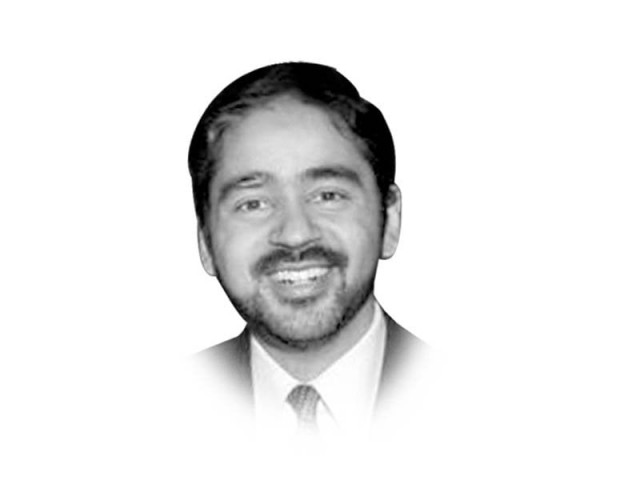Public health also needs science
Our public health approach continues to be heavy on implementation

The writer is a Howard Hughes Medical Institute professor of Biomedical Engineering, International Health and Medicine at Boston University. He tweets @mhzaman
First, an analysis of public health professionals in the country reveals that it is largely populated by two groups of people. First are doctors (and other medical professionals) and the second is social scientists. My points below are about the first group. The engagement of basic science in public health remains weak, though there are a few exceptions, most prominent among them are colleagues at the Aga Khan University in Karachi. Our doctors, by and large, lack training in basic sciences, thanks to a national medical curriculum that is rigid, archaic and not particularly innovative. The lack of training in mathematics, thanks to a bizarre segregation of our students into “pre-engineering” versus “pre-medical” is a crisis that continues to baffle those who see poorly-thought education policies stifling our own creativity.
For some inexplicable reason, we continue to deprive potential medical students of basic training in calculus despite the increasing global demand for quantitative skills and mathematical reasoning in biological and health sciences. But the problem is not just this segregation, as our commitment to archaic traditions continues to affect the medical curriculum well beyond intermediate examinations.
An analysis of the PMDC approved curriculum paints a troubling picture that is light on rigorous science. Critical topics in cell biology and immunology are, at best, dealt with a cursory attitude, with minimal emphasis on inquiry, research or a robust discussion of new and cutting edge quantitative methods. There is little doubt that the country sends its brightest to medical schools and colleges, yet our medical research lags behind in discovery. Somehow the system is unable to capitalise on its best talent. This gap between the promise and action should be concerning for all of us.
The consequence of the lack of science, or the emphasis on science among our medical professionals impacts our understanding of our disease landscape and preparedness for new and emerging challenges. There is increasing recognition in the field of global public health that environmental, veterinary and human health are all interconnected in a single framework of “one health” or planetary health. Changing environment, through pollution, urbanisation and climate change, affects the interconnected world of agriculture, animals and humans, creating new and increasingly complex health challenges that jump from animals to humans in a process that is often accelerated by environmental factors. The emergence of new strains of deadly diseases require a deeper understanding of the science underlying disease origin, spread and impact and the therapeutic and containment approaches that are best suited to tackle the problem early in an effective manner.
The lack of training in fundamental sciences makes this process complicated, and often the result is the need for a “foreign team” to tell us what to do. It means that we continue to depend on others to help us manage the health challenges that affect our own people. The cost of this dependency is staggering. The local ability to investigate the basic genetic, molecular and cellular causes of disease, understand the nuances of drug resistance or to contribute to discovery of new therapeutics is limited and creates a tremendous sense of dependency on discoveries made elsewhere. Our public health approach continues to be heavy on implementation, and light on discovery.
As we start to create a viable path to health access and equity, and make a serious push towards meeting the UN sustainable development goals, we have to realise that public health is more than programme strengthening and implementation. The foundations of effective public health rest on rigorous and high quality science, and without adequate training in fundamental science, our dream of health prosperity will remain just that; a dream.
Published in The Express Tribune, April 11th, 2017.
Like Opinion & Editorial on Facebook, follow @ETOpEd on Twitter to receive all updates on all our daily pieces.














COMMENTS
Comments are moderated and generally will be posted if they are on-topic and not abusive.
For more information, please see our Comments FAQ